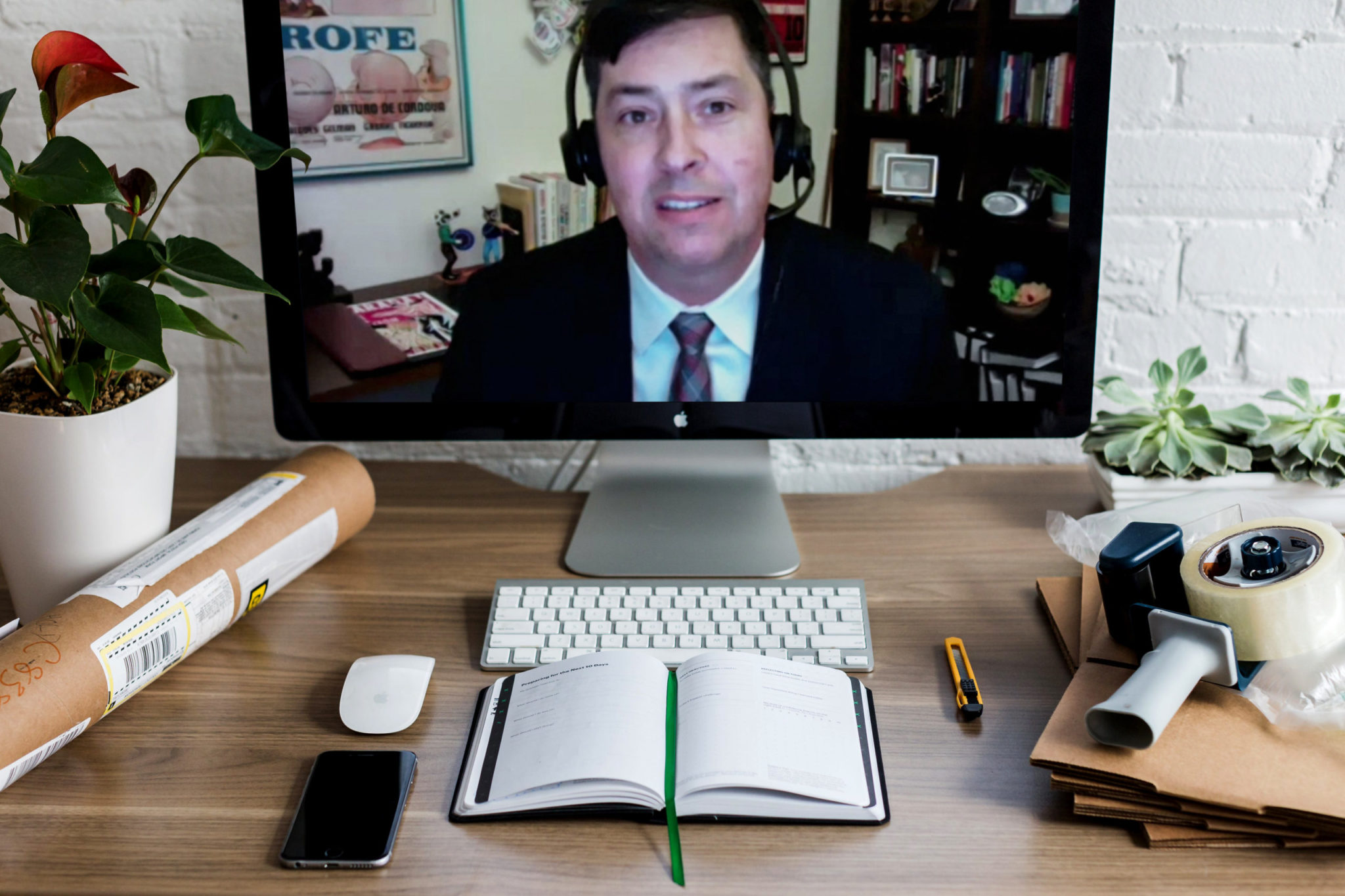
Courtesy of Larissa Jimenez
The Center for the Study of Race, Indigeneity and Transnational Migration hosted a panel of Latinx history scholars to discuss their work on the American Latino Heritage Theme Study for the U.S. National Park Service.
RITM welcomed eight panelists Sunday evening for a conversation about documenting, interpreting, teaching and sharing the diverse histories of Latinx communities in the United States. Stephen Pitti — founding director of RITM and professor of history, American studies and ethnicity, race and migration — moderated the panelists’ presentations. The seven other panelists discussed their participation in the American Latino Heritage Theme Study, a collection of essays published by the National Park System Advisory Board for the National Park Service.
Former Obama appointee to the Department of the Interior Celinda Peña welcomed attendees and introduced former Secretary of the Interior Ken Salazar, who spoke about the importance of telling a more inclusive story of the United States.
Salazar said he was “frankly challenged” by the fact that only 8 percent of the 2,600 national landmarks around the country recognize women, Native Americans, African Americans, LGBTQ people and Latinxs.
“What about telling America’s story in perpetuity? How could 92 percent of America’s history and perpetuity be only white men? It is absolutely unconscionable, especially when talking about racial justice and equity,” Salazar said. “No matter whether they are Black or brown or Native American, man or woman, LGBTQ, or whatever their background … it is really part of every person’s right to have recognition of their history.”
He also mentioned the timeliness of the panelists’ presentations as the country looks towards Election Day and beyond Nov. 3 to “what the nation could be.”
Co-Chair of the American Latino Scholars Expert Panel Belinda Faustinos, who also introduced the panelists, attributed the success of the publication to the “hard work and diligence” of the panelists who authored its essays. She also gave a “virtual grito” to scholars such as the late political scientist Rodolfo de la Garza and filmmaker Francis Negrón-Muntaner.
Professor Pitti was the first panelist, and he discussed an overview of Latinx history through the lens of five historical figures, acknowledging that this history is “too complex to summarize in 10 minutes” but that the figures serve to show the range of the theme study.
Pitti chose to highlight Felix Varela, María Amparo Ruiz de Burton, Arturo Schomburg, Luisa Moreno and Edward R. Roybal. Varela, Pitti said, spent his time as a prominent Catholic priest in New York state pushing for “broader democratic change in Latin America and the Caribbean during the years of Spanish colonization.”
Ruiz de Burton, on the other hand, lived through the Mexican-American War, which altered her life, leading to her family’s loss of property and power under U.S. rule in present-day Los Angeles. She later ran what remained of her family’s farms and ranches, “became fluent in the law” and became the first Latina to write a novel in the English language. Pitti also discussed Luisa Moreno, a Guatemalan woman who rejected her conservative, wealthy upbringing to move to New York City and became a labor organizer “at the bottom of the U.S. wage scale.”
Four panelists followed Pitti’s presentation, touching on their expertise of Latinx history in the United States.
José M. Alamillo — professor and chair of Chicano studies at California State University Channel Islands — gave a brief overview of the history of Latinx communities and sports. He described how immigration and globalization gave rise to sports such as charrería — a “colonial sporting tradition” similar to the rodeo.
Northwestern University professor of history and Latino studies Geraldo L. Cadava presented on the economic contribution of Latinx communities in the United States. He characterized Latinas as the “fastest growing group of business owners” and emphasized the need to “move the conversation [about Latinxs] away from immigration.” In doing so, he hopes that people can begin to think of Latinxs as Americans and not foreigners by default.
“We’ve been here for a long time and we’ve made important and lasting contributions,” Cadava said.
Cadava described how leading up to the 2020 election, he has been focused on partisan politics and how both candidates have “made appeals” to Latinx business owners, a segment of the population that is often “instrumentalized” in politics. Cadava also said that politicians view dairy farmers and suburbanites as exclusively “American,” often forgetting that Latinxs can also be the two.
In his presentation, professor and Chair of the Theology Department at the University of Notre Dame Timothy Matovina discussed the religious and spiritual history of Latinxs in the United States. He also spoke to the multiracial beginning of the United States — with Spanish and French colonization alongside British — that he believes is often overlooked, pointing to the Spanish-speaking Catholics that moved from south to north while the British moved westward.
The last panelist, Lorena Oropeza — professor of history at the University of California, Davis — discussed the intersection of the history of Latinxs in the military and the history of civil rights through the lens of Private First Class of the U.S. Army Silvestre Herrera’s story. Herrera, who served in World War II, was the first soldier from Arizona to receive the Medal of Honor — and he returned home to a parade.
“The service of Latinxs to this country is used as a tool, as a strategy to push the quest of equality, that is the main argument of my work and my essay for the theme study,” Oropeza said.
RITM is a University-wide, interdisciplinary academic research center that houses the undergraduate program in ethnicity, race and migration and the academic journal Social Text.
A recording of the event will be posted to the RITM playlist on the Yale YouTube channel.
Larissa Jimenez | larissa.jimenez@yale.edu
Ángela Pérez | angela.perez@yale.edu







